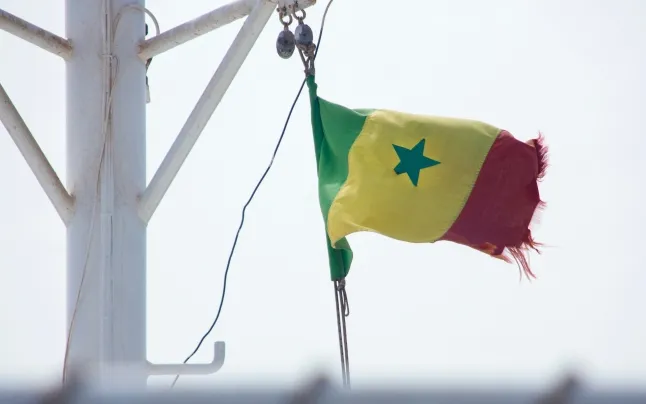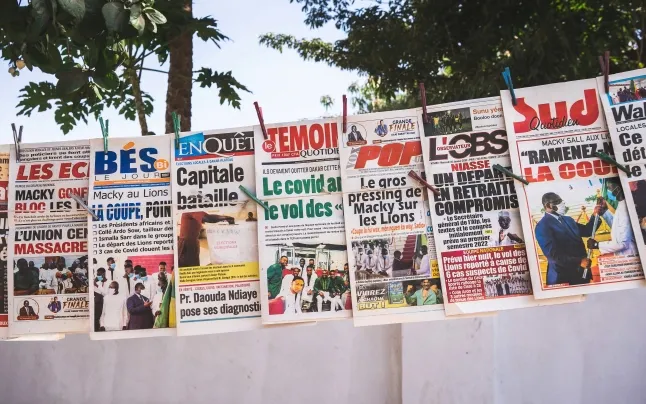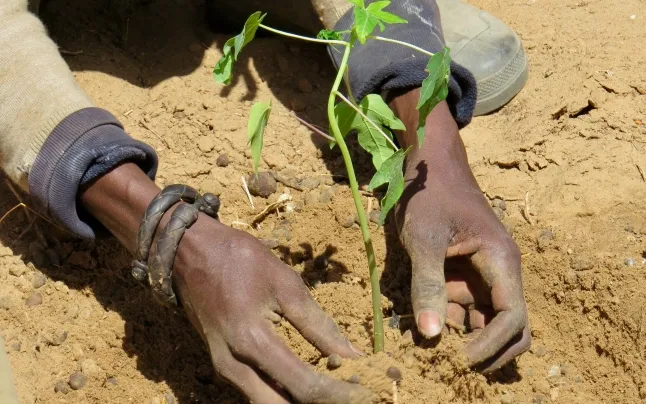Senegal wants to leave behind the social tension after the president's resignation from a controversial third term
Lamine Sarr talk about Macky Sall's decision, who has announced that he will not run for re-election following popular pressure and the serious protests that the country has experienced.
"My dear compatriots, my long and carefully considered decision is not to be a candidate in the next election of February 25, 2024". After months immersed in tremendous social tension, Senegal breathes a sigh of relief after hearing these words from the current president, Macky Sall. In a speech addressed to the nation, he announced that he will not seek a third term as the country's president.
The announcement has taken almost everyone by surprise and is expected to help alleviate the simmering tensions that have plagued the country in recent years, resulting in serious disturbances and protests that were brutally suppressed by Sall's government. The current president, in power since 2012 and veering towards authoritarianism, intended to run for a third term, which is unconstitutional. Ultimately, and against all odds, he has relented, putting an end to the uncertainty that loomed over the historically stable country in West Africa.
Sall was forced to make this decision due to the consequences of what can already be considered the worst riots in the country's history. From June 1st to 3rd, severe riots violently suppressed by security forces resulted in the deaths of around thirty people, according to the opposition to Sall, or sixteen according to official sources. The outbreak occurred after Ousmane Sonko, the main political opponent to the president and leader of the African Patriots of Senegal for Work, Ethics and Fraternity (PASTEF), was sentenced to two years in prison for "corruption of youth",
This sentence prevents Sonko from running in the presidential elections of February 2024, where he was considered the clear favorite. In fact, the rape accusation – of which he was ultimately acquitted – and the judicial process against the leader of PASTEF have been interpreted as a maneuver orchestrated by Sall's government to sideline his main political rival from the race for the presidency.
Sall's resignation from an illegal third term has been met with satisfaction worldwide, as concerns grew over the authoritarian spiral of his government and the increasingly volatile social situation in the country. The Senegalese diaspora in Catalonia, which had already mobilized to protest against the democratic regression and violence employed by the Senegalese president's administration, also welcomed the decision.
"Sall has resigned because he had no other possible option, and his decision should have come much earlier; he didn't do it because he wanted to, but because he tried to present himself until the last moment," explains Lamine Sarr, member of the Sindicat de Venedors Ambulants de Barcelona and spokesperson for the #RegularizaciónYa movement, who doesn't hesitate to qualify Sall's resignation as "a victory of the people".
A turbulent scenario fueled by a government in a spiral of authoritarianism
The riots that occurred in early June are not the first to take place in the country. In March 2021, there was also a social outbreak following Sonko's arrest on rape charges, which his followers considered a setup to undermine his figure and bury his political career.
This is also how Lamine Sarr sees it, describing the accusation against Sonko as "a baseless plot that everyone knows would have no grounds under normal circumstances, but it has moved forward because Sall and his supporters control the judiciary."
Despite everything, as happened during the recent riots, those disturbances and the brutal response from the security forces claimed the lives of fourteen people, with no one taking responsibility for the killings. On the contrary, Sall's authoritarian drift intensified, further inflaming the population.
This antidemocratic and repressive impulse from Macky Sall has not only targeted Sonko but has also affected all those who have been critical of his figure and his government. Apart from the main opposition politician, Sall's administration has imprisoned politicians, activists, artists, influencers, and journalists who have criticized his leadership for reasons such as insulting the head of state or the perceived danger of incitement to violence, among others.
Freedom of expression in Senegal has also suffered under Sall's authority. As an example, in the context of the riots last June, the government restricted internet access and disrupted television signals to prevent information about the brutal repression against protesters from being disseminated.
"These restrictions on the right to freedom of expression and information constitute arbitrary measures contrary to international law and cannot be justified by security imperatives", expressed Samira Daoud, Regional Director of Amnesty International for West and Central Africa.
Beyond the violent reaction against any criticism and the repression of political opponents, there are multiple reasons for the population's discontent with Sall's government. One of the most prominent is endemic corruption, abuse of power, and nepotism that have characterized the current president's tenure leading the country.
"His presidency has been disastrous for many reasons, such as constant favoritism towards members of his family and the blatant way they have plundered and stolen from the Senegalese people; while they enriched themselves, the population was dying of hunger", says Lamine Sarr.
In addition to that, it is evident that during Sall's tenure, the policy of submission to foreign powers, especially France, has worsened. This has been reflected in highly favorable trade agreements with multinational companies that have facilitated the exploitation of the country's resources and wealth. Let's take, for example, the renewal of bilateral fishing agreements signed with the European Union (EU), which have devastated local artisanal fishing and forced thousands of people to migrate in order to survive.
"Sall doesn't even control his own administration; it is basically a gang of bandits who have sold the country and tied the chains around the population's necks, with total submission to France, NATO, and big multinational corporations," decisively concludes the member of the Sindicat de Venedors Ambulants de Barcelona.
Ousmane Sonko, a symbol that goes beyond Senegal
The next step towards democratic normality would be to open the door for Ousmane Sonko, the most popular politician in the country, to run in the 2024 presidential elections. Convicted to a two-year prison sentence for "corruption of youth," the future of the PASTEF leader is currently very uncertain, but his party has already announced that they will exert pressure and mobilize to obtain a pardon that would allow him to participate in the elections.
In recent years, Sonko has gained great popularity in the country, particularly among the youth, thanks to his highly critical discourse against Sall's corrupt regime and the subordination of the Senegalese government to foreign powers and multinational corporations that exploit the country's resources and wealth.
Thus, the figure of Sonko has become an inspiration for a significant part of the young population, who see him as a hope for a better future for Senegal. "Despite all the difficulties in spreading his ideas and the persecution he endures, Sonko is changing many minds in the country with his project for economic and political decolonization, which has made him a symbol not only for Senegal but for the entire Africa," expresses Sarr.
For the Senegalese diaspora living in Catalonia, where one of the largest communities resides, the turbulent situation in the country is a cause for great concern, and in recent times, mobilizations have been organized to demand a democratic and peaceful resolution to the social and political crisis. "The truth is that it is hard to witness everything that is happening from a distance, but we have confidence that the confrontations that have caused so much harm will not be repeated and that the country will move forward," Lamine Sarr hopes.









Add new comment